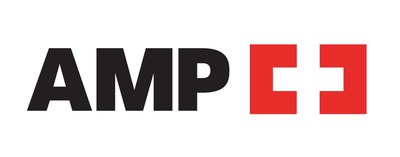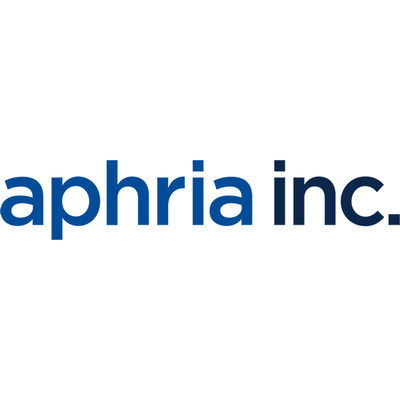AMP German Cannabis Group Inc. (" AMP ") (CSE: XCX ), ( Frankfurt : C4T ) (ISIN: CA00176G1028) and Aphria Inc.'s (" Aphria ") (TSX: APHA ) (NASDAQ: APHA) wholly-owned German subsidiary, CC Pharma GmbH (" CC Pharma "), have entered into a strategic agreement (the " Co-Promotion Agreement ") covering joint marketing of sales for Aphria brand medical cannabis products for the German market.
The Co-Promotion Agreement is a collaboration contract between AMP and CC Pharma to sell the Aphria medical cannabis brand in Germany . In addition, AMP will organize with the support of CC Pharma, "information events" in Germany to market Aphria branded products to doctors and pharmacists.
Hendrik Knopp , Managing Director of Aphria Germany GmbH mentioned, "We are proud to launch our high-quality medical cannabis under the Aphria brand in Germany with the support of AMP. This agreement provides the opportunity to expand the Aphria brand in Germany , one of our key international markets."
Dr. Stefan Feuerstein , Director and President of AMP, commented, "We are proud to partner with Aphria and CC Pharma GmbH. Our sole focus is to sell medical cannabis in Germany , which makes us an ideal partner to co-promote and sell the Aphria brand. In preparation for this partnership, we have significantly expanded our sales team to sell the Aphria and AMP brands as well as other branded medical cannabis products across Germany ."
About Aphria Inc.
Aphria Inc. is a leading global cannabis-lifestyle consumer packaged goods company with operations in Canada , United States , Europe , and Latin America , that is changing people's lives for the better – one person at a time – by inspiring and empowering the worldwide community to live their very best life by providing them with products that meet the needs of their mind, body and soul and invoke a sense of wellbeing. Aphria's mission is to be the trusted partner for its patients and consumers by providing them with a cultivated experience and health and wellbeing through high-quality, differentiated brands and innovative products.
Headquartered in Leamington, Ontario , Aphria cultivates, processes, markets and sells medical and adult-use cannabis, cannabis-derived extracts and derivative cannabis products in Canada under the provisions of the Cannabis Act and globally pursuant to applicable international regulations. Aphria also manufactures, markets and sells alcoholic beverages in the United States . For more information, please visit: https://aphria.ca .
About CC Pharma GmbH
Founded in 1999, CC Pharma is based in Densborn, Germany and is one of the leading national distributors of pharmaceutical products to pharmacists in Germany , with over 13,000 pharmacies in its sales network. For more information, please visit: www.cc-pharma.de .
About AMP German Cannabis Group
AMP German Cannabis Group is licensed to import European Union - Good Manufacturing Practice (EU-GMP) medical cannabis from Europe and elsewhere into Germany . AMP sources, stores, transports, delivers, and sells medical cannabis products to pharmaceutical distributors or pharmacists directly, the only point-of-sale for medical cannabis to German patients with a physician's prescription. AMP has entered into a non-exclusive distribution agreement for medical cannabis with a leading distributor of pharmaceuticals products to more than 13,000 pharmacies throughout Germany .
AMP has sponsored a six-episode roundtable discussion series about medical cannabis in Germany . The Roundtable Series is available by podcast or video. In Episode #2 titled, "Politics and Medical Cannabis in Germany ", Dr. Wieland Schinnenburg, MdB (FDP) provides an up-to-date overview of the political issues and challenges facing the medical cannabis industry in Germany . The panel also includes Dr. Stefan Feuerstein , President of AMP and Mr. Holger Scholze as moderator. AMP Roundtable Series: www.amp-eu.de/roundtable
For more information, please visit: www.amp-eu.com
Aphria Inc. social media links:
- Twitter: https://twitter.com/aphriainc
- LinkedIn: https://www.linkedin.com/company/aphriainc
- Facebook: https://www.facebook.com/aphriaMMJ
AMP social media links:
- Twitter: https://twitter.com/AMP_Cannabis
- LinkedIn: www.linkedin.com/company/ampgermancannabisgroup
- Facebook: www.facebook.com/AMPGCG
- Instagram: www.instagram.com/ampgcg
- Podcast: https://ow.ly/EqBc50BJ4xw
Media Kit: www.amp-eu.com/media-kit
CAUTIONARY NOTE REGARDING FORWARD-LOOKING STATEMENTS: Certain information in this news release constitutes forward-looking information or forward-looking statements (together, "forward-looking statements") under applicable securities laws and are expressly qualified by this cautionary statement. Any information or statements that are contained in this news release that are not statements of historical fact may be deemed to be forward-looking statements, including, but not limited to, statements in this news release with regards to the expected impact of the EU GMP certification on the Company's business and expectations related to the Company's market position. The Company uses words such as "forecast", "future", "should", "could", "enable", "potential", "contemplate", "believe", "anticipate", "estimate", "plan", "expect", "intend", "may", "project", "will", "would" and the negative of these terms or similar expressions to identify forward-looking statements, although not all forward-looking statements contain these identifying words. Various assumptions were used in drawing the conclusions contained in the forward-looking statements throughout this news release. Forward-looking statements reflect management's current beliefs with respect to future events and are based on information currently available to management including based on reasonable assumptions, estimates, internal and external analysis and opinions of management considering its experience, perception of trends, current conditions and expected developments as well as other factors that management believes to be relevant as at the date such statements are made. Forward-looking statements involve significant known and unknown risks and uncertainties. Many factors could cause actual results, performance or achievement to be materially different from any future forward-looking statements. Factors that may cause such differences include, but are not limited to, risks associated with COVID-19 nationally and globally which could have a material adverse impact on Aphria's business, operations and financial results, including disruptions in the supply chains and sales channels, as well as a deterioration of general economic conditions including national and/or global recessions and the response of governments to the COVID-19 pandemic in respect of the operation of retail stores; general economic conditions; adverse industry events; marketing costs; loss of markets; future legislative and regulatory developments involving cannabis or otherwise affecting Aphria's business or its consumers generally; inability to access sufficient capital from internal and external sources; income tax and regulatory matters, including delays in the issuance of licenses; the sale and distribution of vapes; the ability of Aphria to meet its liquidity requirements to fund ongoing operations; the ability of Aphria to implement its business strategies; competition; currency and interest rate fluctuations.
Readers are cautioned that the foregoing list is not exhaustive and should carefully review the various risks and uncertainties identified in the Company's filings on SEDAR and EDGAR. Readers are further cautioned not to place undue reliance on forward-looking statements as there can be no assurance that the plans, intentions or expectations upon which they are placed will occur. Such information, although considered reasonable by management at the time of preparation, may prove to be incorrect and actual results may differ materially from those anticipated.
The forward-looking statements included in this news release are made as of the date of this news release and the Company does not undertake an obligation to publicly update such forward-looking statements to reflect new information, subsequent events or otherwise unless required by applicable securities laws. Neither TSX nor its Regulation Services Provider (as that term is defined in the policies of Toronto Stock Exchange) accepts responsibility for the adequacy or accuracy of this release. In addition, neither the CSE nor its Regulation Services Provider (as that term is defined in the policies of the CSE) accepts responsibility for the adequacy or accuracy of this release.
Forward-looking statements contained in this news release are expressly qualified by this cautionary statement.
SOURCE AMP German Cannabis Group Inc.

![]() View original content to download multimedia: https://www.newswire.ca/en/releases/archive/January2021/26/c0266.html
View original content to download multimedia: https://www.newswire.ca/en/releases/archive/January2021/26/c0266.html

